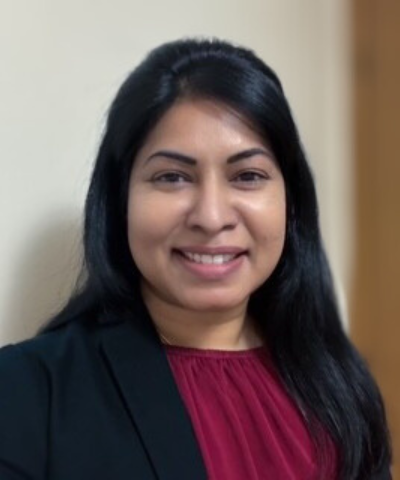
Introduction
Hima Bindu Gottam, BPharm, MS, MBA, is a pharmaceutical scientist who helps turn new drug ideas into real medicines. As the Director of Formulation Development at UI Pharmaceuticals, she works on creating and improving different types of medications to make them safe and effective for patients. With a strong background in pharmacy, she is passionate about using science to improve healthcare. Her work helps bring new treatments from the lab to clinical trials, where they can eventually be used to help people around the world. Read more about her work here.
Why Pharmacy
I chose pharmacy because I wanted to help people live healthier lives. Growing up in India, I saw many people struggle with illnesses and felt a strong desire to make a difference. Pharmacy allows me to do just that—by improving the quality of medications and making treatments more effective. It was the perfect career choice for me because it aligns with my values of helping others and making an impact in healthcare.
Career Journey
As a first-generation college student in India, there was pressure to follow a more traditional path like engineering, but I wanted to do something more meaningful. I loved both Math and Science, but my real passion was in developing life-saving medicines. That led me to pursue a degree in pharmacy. After earning my bachelor's in India and a master's in the U.S., I started working as a scientist at a small pharmaceutical company. Over time, I gained experience in developing different types of drug products, and now I’m the Director of Formulation Development at UI Pharmaceuticals, where I help turn new drug ideas into real treatments.
Current Role and Responsibilities
My day is a mix of meetings, scientific discussions and hands-on problem-solving. I work with clients, scientists, and manufacturing teams to develop new drug products. A big part of my job is figuring out how to come up with a robust formulation compositions, which are safe and effective, and making sure they can be produced on a large scale. I also keep up with new technology and changing regulations to make sure we’re always compliant and continuously improving our operations.
Challenges
Balancing scientific creativity with real-world limitations. It’s exciting to come up with new ideas for better medicines, but turning them into actual products comes with challenges. Sometimes, what works in the lab doesn’t work in large-scale production, and I have to find solutions keeping the limitations in mind. Managing expectations from clients, teams, and regulatory agencies adds another layer of complexity, but it keeps the job interesting.
Rewards
The best part of my job is knowing that the drug products I help develop can improve or even save lives. Since I was young, I wanted to help people in a meaningful way. While I can’t change everything in the world, I can contribute by creating better treatments for diseases. Seeing a drug go from an idea in the lab to being used in real patients is incredibly fulfilling.
One of the most rewarding projects I worked on was a new treatment for Glioblastoma, a type of brain cancer. The drug molecule had a lot of challenges, but my team and I worked through them. Eventually, we successfully developed a batch that is now being tested in clinical trials. Knowing that our work could give hope to patients fighting this disease is an amazing feeling.
Work/Life Balance
For me, balance is all about priorities. When I took on a leadership role at UI Pharmaceuticals, I also decided to earn an MBA. It was tough, but I managed by setting clear goals and sticking to a schedule. Instead of trying to do everything at once, I focused on what mattered most each day. Work-life balance doesn’t mean splitting time evenly—it means making time for what’s truly important.
Advice for Students and Aspiring Professionals
Get hands-on experience! Whether it’s working in a lab, interning at a pharmacy, or shadowing a pharmacist, real-world exposure is invaluable. Also, develop strong communication and problem-solving skills. Being great at science is important, but so is being able to explain your ideas clearly and work well with a team. Finally, be open to learning from different fields—pharmacy connects with chemistry, biology, business, and even technology. The more you know, the more opportunities you’ll have.